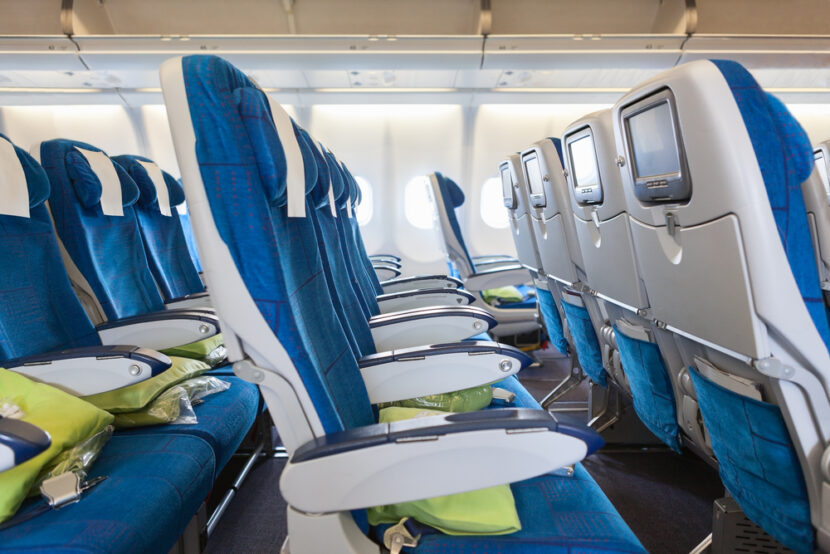MONTREAL – WestJet Airlines is accelerating its pitch for business and wealthier leisure travellers by offering European-style seating with more room.
The carrier will enhance its Plus premium economy service starting Monday by leaving empty two middle seats in the first three rows of its Boeing 737 aircraft.
The change will allow WestJet to collect a premium, which it says will more than offset the lost revenue from six empty seats.
“The value proposition is such that for the cost-conscious business traveller we believe this is a killer product,” Bob Cummings, executive vice-president commercial, told a Cowen and Company transportation conference in Boston.
WestJet will cover the empty seats with work consoles on all narrowbody jets over the coming months.
The Plus seating is about 31 to 59 per cent more expensive than regular economy fares. However, it is substantially cheaper than Air Canada’s business class fares.
WestJet’s premium economy fare was launched more than a year ago with features like free checked bags, no charge for changing flights, extra legroom, advanced boarding and seat selection, priority security clearance and free food and beverages.
Chris Murray of AltaCorp Capital said the product will likely appeal to businessman for whom price is a key factor, rather than flight frequencies or connections.
“I would describe it more as evolutionary as opposed to revolutionary,” he said in an interview.
WestJet spokesman Robert Palmer said the enhanced plus product is not business class but will still appeal to business and leisure travellers wanting a little more space and some extra amenities.
On WestJet’s new Boeing 767s, the Plus section will include 24 larger seats in four rows separated by two aisles.
The first of four of the widebody planes will fly between Toronto and Calgary. The others will offer winter service between Alberta and Hawaii, along with Toronto to Jamaica before international service is added beginning in May.
Meanwhile, WestJet finally confirmed Wednesday that the dramatic drop in oil prices is affecting its Alberta business.
“We are seeing some softening in the Alberta market as you would expect with what’s gone on with the prolonged (slump in) oil prices,” Cummings told institutional investors.
About a quarter of WestJet’s (TSX:WJA) seating capacity is devoted to flights to and from the oil-producing province.
Cummings said that a switch in some traffic from charter carriers to scheduled service has helped to mitigate the situation, adding that demand in British Columbia and Ontario remains healthy.
Air Canada (TSX:AC) later told the conference that it too has felt an impact in Western Canada but has been able to adjust by shifting flights elsewhere in Canada or to international destinations which now account for more than half the airline’s revenues.
“We’re so well-diversified from a revenue base and so when situations like Western Canada happen then we can redeploy capacity to other parts of the world or North America where that capacity is required,” said chief financial officer Michael Rousseau.
